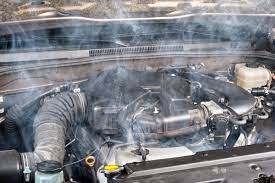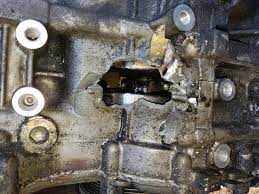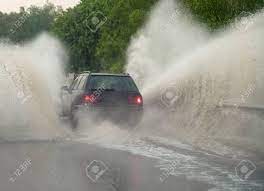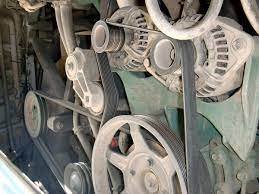What Causes an Engine to Seize and How Do You Fix It?
A seized engine is an absolute nightmare and definitely not something you will ever want to experience. In this article we will explain what it is exactly, what can cause it and what you will have to do to get it fixed.
What Is a Seized Engine?
Essentially when an engine seizes it means that it will no longer rotate when you try to start it. This rotation is important and if it does not rotate the engine will not start at all. Your electrics may engage but the engine is essentially dead.

If your engine seizes this is likely a sign of serious damage to the engine. You can be pretty sure the bill for these repairs will be substantial.
What Are the Symptoms of a Seized Engine?
Sitting in the car and trying to start it but failing doesn’t immediately tell you that you have a seized engine. There are some other indications as well that can warn you that things are not great with your engine.
Engine Doesn’t Start
Obviously this is a big indicator that you have a problem. The engine will not turn over but electronics such as the heater lights and radio will turn on. Additionally when you try to start the engine you may hear an audible clunking sound which would be the starter impacting the flywheel which obviously will not move.
A Visible Physical Defect
This is going to be a case of something you do not want to see but it could be the case so we should mention it. If you open the hood and look at the engine you may see a part out of place or more concerningly having blown through the engine block.

This could be a piston connecting rod or something similar that due to major damage has come loose and pierced the engine block.
Burnt Wires
If you are attempting to start the engine and you notice smoke and a burning smell this could be burning wires. It is a common occurrence because the wires can overheat from the effort of trying to start a seized engine. This is also a sign for you to stop trying to start the engine until you have fixed whatever the issue is.
Engine Noise
There are usually some audible warning sounds when an engine is about to seize such a s light tapping or a faint knocking sound. Ultimately you will hear a final louder knock which will likely be a piston rod hitting the crankshaft.
What Causes a Seized Engine?
There are a number of reasons that an engine can seize but the most common one is a lack of engine oil in the oil pan. Water in the cylinders can also be the culprit as can broken crankshaft rods or pistons.
Driving with an overheating engine can also cause an engine seizure as it creates a great deal of damage in the engine. This is why a well maintained cooling system is vital and you should never drive for a long time with an overheating engine.
Reasons for a seized engine include:
Your car has a minimum and maximum level of engine oil that it needs to run efficiently. Falling above or below these respective levels can do real damage while you drive. Engine oil lubricates the moving parts of your engine allowing them to move smoothly with limited friction. This also helps to keep the engine cool to a degree.
If your engine oil gets too low then the engine will start to heat up and the moving parts will rub against one another. This will cause damage throughout the engine and eventually something in the engine will break and it may do so with impressive violence.
Water in the Engine
There is a certain amount of water mixed with a coolant that circulates an engine but it is contained in a specific cooling system and should not be getting into the oil. Generally water that enters the engine comes from outside of the car.

Driving through a deep puddle can allow water into the intake or you may get water in the fuel tank as well. This water can find its way to cylinders where it creates a big problem. The air/fuel mixture that is supposed to be in the cylinders compresses but water does not.
If water gets into cylinders its refusal to compress can lead to bent connecting rods which can lead to the engine seizing up. When this occurs mechanics refer to it as a Hydrolock.
Rusty Components
Most metals, although not all, are prone to rust and the parts of the engine are mostly metal. The older a car is and the environment it is driven in can have an impact on engine parts potentially rusting. Living near the sea for example can make a car more prone to rust in general or living in wintery areas where the car may be exposed to road salt can also have the same effect.
The internal parts of your engine should be safe from this however thanks to the oil but if water gets into the engine it can cause rust which eventually will eat away at the internal parts of the engine. Rusty parts grinding together create metal shavings and this may interfere with the engine operation.
Overheated Engine
As mentioned when an engine overheats it can cause damage. Pistons may expand, making them grind against the cylinder walls. It can also melt gaskets and valves which can in turn lead to a major breakdown of the engine.
How to Fix a Seized Engine
To fix a seized engine you must first confirm that this is the actual problem. A locked starter motor mimics a seized engine and can be fixed relatively easily so you should check this first. If the starter motor is not at fault you must next check the crankshaft.
If you can manually turn the crankshaft then breathe a sigh of relief the engine is not seized. If it will not turn then you may have a seized engine. First however remove the starter and try to turn the crankshaft again if it moves then the starter is the issue.
If you remove the serpentine belt and the crankshaft can be rotated then the problem may be a bad alternator or air conditioning compressor. You can then finally check the timing belt to make sure that it is working correctly.

Having checked these other possibilities and the crankshaft will still not rotate then you definitely have a seized engine. Our apologies because this is going to be a costly repair and may even require a whole new engine. The truth is the damage caused to a seized engine can often ruin it completely.
It may not be a complete loss however sometimes there may just be one internal part that has broken and you can actually replace it. This may require the help of a mechanic though and the cost may be more than simply replacing the engine.
It should be noted however that high performance or rare motors may be cheaper to repair than replace so this would be a case of getting a quote from your mechanic for the repairs.
Can You Rebuild the Engine?
If you are very mechanically minded and up for a challenge you might be able to rebuild the engine replacing the broken parts in the process. Getting a mechanic to do this however may be very expensive. They may also shy away from a repair that includes a rod having broken through the engine block.
How Much Does a Seized Engine Cost to Fix?
Let's start out by saying that older model cars with seized engines commonly end up at the scrap yard rather than in the hands of a mechanic. The repair costs can very quickly reach and exceed $3,000 depending on the problem.
Basically a seized engine can be the end of a car and many people would likely cut their losses and junk the car and get a new one.
Avoiding a Seized Engine
As you read through this article you likely picked up on the causes of a seized engine so you may already have some idea of how to avoid this happening to you but let's reiterate a few points.
- Never Ignore an Overheating Engine
- Avoid Water Entering your Engine
- Make Sure Engine Oil is Topped Up
- Have Your Car Tuned up Regularly
- Do Not Ignore Warning Lights
Conclusion
The seized engine can be the death of your car and frankly depending on severity you may need a new engine. The cost of this may exceed the value of your car and many people will just sell the whole thing for scrap price and get a new vehicle.
Regular maintenance to your car can help you avoid this ever happening to you but it does not guarantee it.
Link To or Reference This Page
We spend a lot of time collecting, cleaning, merging, and formatting the data that is shown on the site to be as useful to you as possible.
If you found the data or information on this page useful in your research, please use the tool below to properly cite or reference Tow Ratings as the source. We appreciate your support!
-
<a href="http://towratings.net/blog/what-causes-an-engine-to-seize-and-how-do-you-fix-it/">What Causes an Engine to Seize and How Do You Fix It?</a>
-
"What Causes an Engine to Seize and How Do You Fix It?". Tow Ratings. Accessed on April 26, 2024. http://towratings.net/blog/what-causes-an-engine-to-seize-and-how-do-you-fix-it/.
-
"What Causes an Engine to Seize and How Do You Fix It?". Tow Ratings, http://towratings.net/blog/what-causes-an-engine-to-seize-and-how-do-you-fix-it/. Accessed 26 April, 2024
-
What Causes an Engine to Seize and How Do You Fix It?. Tow Ratings. Retrieved from http://towratings.net/blog/what-causes-an-engine-to-seize-and-how-do-you-fix-it/.